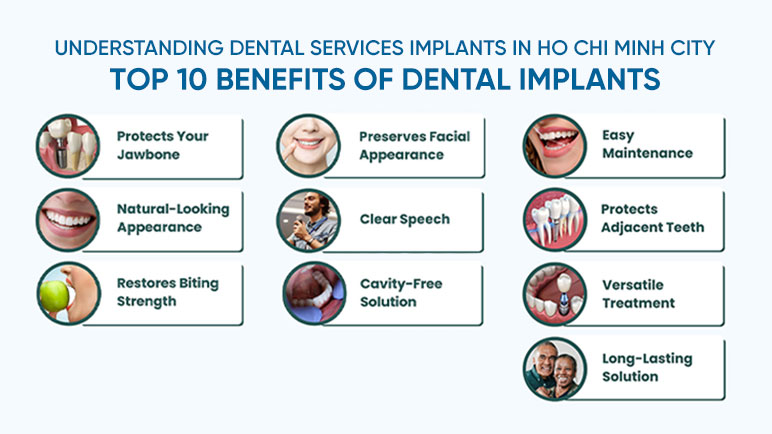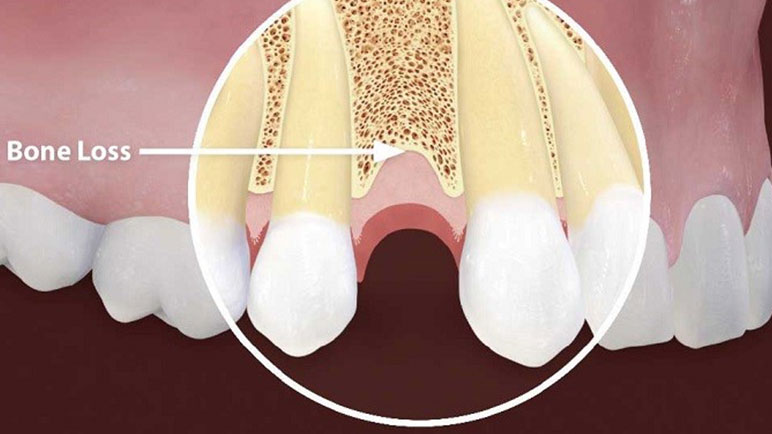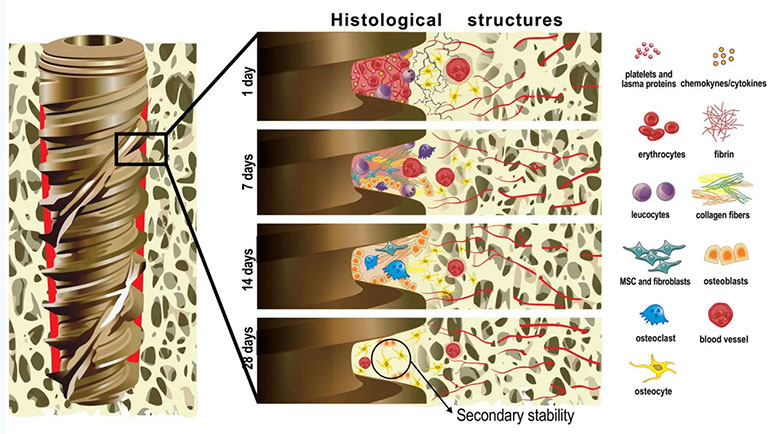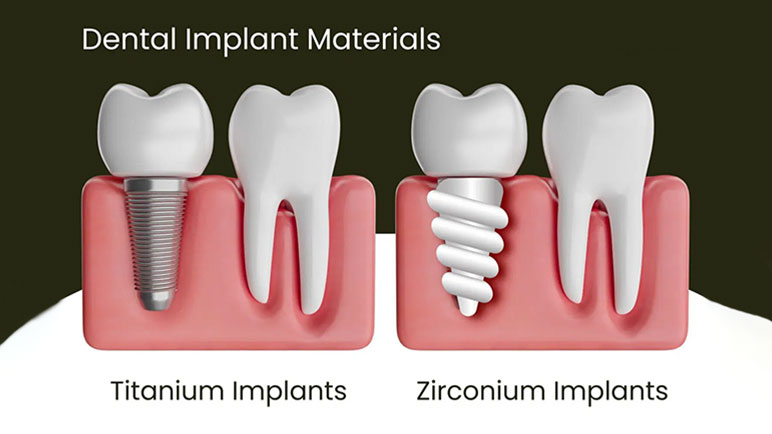Losing a tooth can be a distressing experience, affecting not only your smile but also your ability to chew, speak, and maintain oral health. Fortunately, advancements in dentistry have brought us dental implants, a revolutionary solution for tooth replacement. This comprehensive guide will delve into the world of dental implants in Ho Chi Minh City, providing insights into their workings, suitability, procedures, costs, and benefits. With more people seeking dental services to restore their smiles, understanding these restorative options is essential.
What are dental implants and how do they work?
Dental implants are titanium posts surgically placed into the jawbone, serving as artificial tooth roots. These posts fuse with the bone over time, providing a strong and stable foundation for a crown (artificial tooth) or a bridge. This process, known as osseointegration, mimics the natural tooth root’s bond with the jawbone. Understanding this intricate procedure lays the foundation for grasping the broader context of dental services available today.
The mechanics of dental implants
The primary function of dental implants is to replace missing teeth while preserving the integrity of the jawbone. This is achieved through a multi-step process that includes surgical placement, healing, and restoration.
Implants begin with the placement of a titanium post into the jawbone. This post acts as an anchor for the crown that will eventually be fitted on top. The choice of titanium is crucial due to its biocompatibility, meaning the body readily accepts it. Over several months, the jawbone heals and integrates with the implant — a phase called osseointegration — ensuring a robust bond that creates a solid foundation for chewing and speaking.
Once integration is complete, an abutment connects the crown to the implant, allowing for a seamless transition between the artificial and natural components of your mouth. The custom-made crown is designed to fit perfectly and match the shade and shape of your existing teeth, enhancing both functionality and aesthetics.
Why choose dental implants?
Dental implants offer numerous advantages over traditional dentures or bridges. For starters, they provide a permanent solution to tooth loss, unlike removable prosthetics that require frequent adjustments and replacements. Additionally, implants help maintain jawbone density, preventing the facial structure from changing over time due to bone loss associated with missing teeth.
Furthermore, the stability provided by implants allows individuals to eat a wide variety of foods without fear. Whether enjoying crunchy apples or sticky candies, patients find renewed freedom in their dietary choices. Additionally, dental implants contribute positively to overall oral health, improving speech clarity and boosting self-esteem.

Innovations in implant technology
The field of dental services is ever-evolving, particularly concerning implant technology. Advancements such as 3D imaging and computer-guided surgery allow for precise placements, minimizing discomfort and recovery time. Moreover, newer materials like zirconium crowns have emerged, offering an aesthetic alternative to traditional porcelain crowns. Zirconium crowns boast incredible strength, making them ideal for high-stress areas in the mouth.
Patients seeking effective solutions can now explore diverse implant options tailored to their specific needs. The emergence of laser technology has also made procedures less invasive, leading to less bleeding and quicker healing times.
Who is a good candidate for dental implants?
Dental implants are a highly effective and long-lasting solution for tooth replacement, but they aren’t a one-size-fits-all remedy. Various factors determine whether a person is suited for implant treatment, including overall health, bone density, oral hygiene commitment, and individual lifestyle choices.
Good overall health a prerequisite for success
A crucial aspect of candidacy for dental implants is possessing good general health. Patients whose immune systems are compromised or who suffer from chronic illnesses may face challenges during the implant process. Conditions like uncontrolled diabetes or autoimmune disorders can hinder healing and increase the risk of complications.
Before undergoing implant surgery, dental professionals typically conduct thorough evaluations, including medical histories and physical assessments. It’s vital to disclose all relevant health information, and potential candidates should engage in discussions about their medical conditions.
Adequate jawbone density the foundation for success
For successful implant placement, adequate bone density in the jaw is non-negotiable. The implant must be anchored securely within the bone to ensure longevity and stability. If there is insufficient bone density, patients may require a bone grafting procedure before proceeding with implants.
Bone grafting involves harvesting bone tissue from another part of the body or utilizing synthetic materials to build up the jawbone. This additional step can extend the timeline for receiving implants but is often necessary for those with significant bone loss.

Commitment to oral hygiene essential for longevity
The success of dental implants hinges significantly on oral hygiene practices. Patients must exhibit a commitment to maintaining cleanliness around their implants, involving regular brushing, flossing, and routine dental check-ups. Neglecting oral hygiene can lead to infections or peri-implantitis, conditions that threaten the longevity of the implants.
Dental professionals emphasize the importance of establishing a consistent oral care routine post-surgery. Those dedicated to long-term care usually experience the best outcomes.
Lifestyle choices the impact of smoking and realistic expectations
Lifestyle habits, especially smoking, play a significant role in determining candidacy. Smoking impairs blood flow, delaying healing and raising the risk of implant failure. Dentists frequently encourage patients to quit smoking before undergoing any surgical procedures, including dental implants, to improve outcomes.
Moreover, realistic expectations are paramount. While dental implants are transformative, they are not a magical fix. Patients should enter the process informed and prepared for the healing timeline, follow-up appointments, and ongoing maintenance necessary for successful results.
What is the dental implant procedure like?
The dental implant procedure is multifaceted, consisting of multiple stages that require careful planning and execution. Each appointment builds upon the last, culminating in the final reconstruction of the patient’s smile. Understanding the various phases helps demystify the process and sets patient expectations appropriately.
Initial consultation and assessment setting the stage
The journey toward dental implants begins with an initial consultation. During this appointment, the dentist performs a comprehensive examination, assessing the patient’s dental health and discussing their history and goals. X-rays or 3D scans may be utilized to evaluate bone density and determine the appropriate implant placement strategy.
This stage is crucial for developing a personalized treatment plan that aligns with the patient’s unique circumstances. Discussion regarding potential risks and benefits occurs during this meeting, fostering informed consent.
Implant placement the surgical procedure
Once the initial assessment confirms the patient’s candidacy, the next step is the surgical placement of the implants. Performed under local anesthesia, this procedure typically involves minimal discomfort. The dentist skillfully inserts titanium posts into the jawbone at strategic locations, ensuring optimal support for the crowns.
Post-surgery, patients may experience mild swelling or discomfort, which can be managed with prescribed medications. Following placement, the healing phase commences, requiring patience as osseointegration takes place.

Osseointegration the healing period
Osseointegration is the critical period following implant placement when the jawbone fuses with the titanium post. This process typically lasts several months, during which the bone grows around the implant, establishing a secure foundation. This healing phase is pivotal; successful osseointegration often dictates the outcome of the entire implant process.
During this period, it’s essential for patients to attend follow-up appointments where their dentist can monitor healing progress. Any concerns about pain or unusual symptoms should be communicated to ensure timely intervention if necessary.
Abutment placement and crown fitting final touches
After osseointegration completes, a second minor surgical procedure places an abutment on the implant. This connector links the titanium post with the custom-designed crown. The dentist will take impressions of the teeth to craft a crown that matches the patient’s natural teeth in size, shape, and color.
Once the crown is ready, the final step involves fitting it onto the abutment. At this point, the transformation is nearly complete, leaving patients with a fully restored smile capable of function and aesthetics.
How long does the dental implant process take?
The duration required for the dental implant process can vary based on a multitude of factors, including individual bone density, the number of implants, and overall health. Understanding the timeline helps set realistic expectations for patients considering this restorative procedure.
Individual bone density considerations
One key factor influencing the timeframe is the patient’s bone density. In cases where the jawbone is insufficient to support implants, bone grafting may be necessary. This preliminary procedure adds several months to the overall timeline, as the grafted material requires time to integrate with the existing bone before implants can be inserted.
Patients with sufficient bone density may proceed directly with implant placement, which generally accelerates the process. However, it’s paramount for dental professionals to assess each individual’s unique circumstances before determining a treatment plan.
Number of implants more teeth more time
The number of implants required also affects the timeline. Replacing multiple teeth will naturally entail more surgical procedures and longer healing times. Patients may opt for full arch restorations, which could involve complex strategies for implant placement.
It’s advisable for patients to discuss their options comprehensively with their dentist. Exploring alternatives, such as All-On-4 implants, can expedite the process for those needing extensive restoration.
Expected overall duration
Generally, the full dental implant process can take anywhere from three to six months. This estimate encompasses the initial consultation, surgical placement, osseointegration healing, abutment attachment, and crown fitting. In some instances, patients may require longer recovery periods depending on individual responses to treatment and any additional procedures undertaken.
Regular communication with the dental team throughout the process ensures that any issues arising during healing are addressed promptly, expediting the return to normalcy.
What are the costs associated with dental implants?
When exploring dental services related to implants, understanding the costs involved is crucial. Several factors affect the pricing of dental implants, ranging from the number of implants needed to the type of materials used.
Number of implants an economic factor
The total cost of dental implants can vary significantly based on how many implants are needed for restoration. For patients missing a single tooth, the expense will differ compared to those requiring multiple implants for a full arch restoration.
Additionally, the complexity of the procedure may influence pricing. Multiple guided surgeries or advanced techniques may incur higher costs, so it’s essential for patients to consider their specific requirements.
Location of the clinic regional variability
Another factor affecting dental implant prices is the location of the clinic, best dental services near me. In Ho Chi Minh City, the reputation and facilities of the dental practice can lead to price fluctuations. Well-established clinics with experienced dental implantologists might charge premium fees due to their expertise and advanced technology.
It’s advisable for patients to research various clinics, comparing prices and services offered. Reading reviews and reaching out for consultations can clarify what to expect financially.

Type of implant material matters
The type of implant selected also plays a role in cost determination. Different brands and materials—such as titanium or zirconium—have varying price points. Patients concerned with aesthetics might prefer zirconium crowns for their natural appearance, though they may come at a higher expense.
Additional procedures, such as bone grafting or sinus lifts, can further escalate costs. Patients should inquire about all possible expenses during initial consultations to develop a clear understanding of the financial obligations involved in their dental services.
Insurance options and financing plans
Many dental clinics offer financing plans or payment options to assist patients in managing the expense of dental implants. Some insurance providers may cover part of the costs, especially if the procedure falls under medically necessary treatments.
Discussing insurance coverage with the dental clinic is advisable for those concerned about costs. Understanding available payment plans can alleviate financial stress and lead to a smoother treatment journey.
How do dental crowns and bridges improve smile and oral health?
Dental crowns and bridges are commonly used in conjunction with implants to restore the function and appearance of missing teeth. They play a pivotal role in enhancing both oral health and aesthetics, contributing to individuals’ confidence and well-being.
The role of dental crowns
Crowns are tooth-shaped caps placed over existing teeth or implants, serving both functional and cosmetic purposes. They improve the appearance, strength, and functionality of damaged or compromised teeth.
Crowns can restore a tooth’s shape and size after a filling or protect a weak tooth from fracture. They can also cover discolored or misshapen teeth, effectively transforming a person’s smile.
In terms of longevity, crowns made from durable materials such as porcelain or zirconium can withstand daily wear and tear, helping patients maintain their dental health.
Utilizing dental bridges
Bridges serve to replace one or more missing teeth by spanning the gap with artificial teeth attached to crowns placed on adjacent teeth. They help to maintain the shape of the face, prevent teeth from shifting, and enhance chewing function.
Bridges offer a fixed solution for missing teeth, replacing the natural tooth with an artificial one, thereby restoring function without requiring adhesives or removables. Like crowns, they contribute to improved aesthetics, giving patients renewed confidence in their smiles.
Comprehensive oral health benefits
Both dental crowns and bridges, used in conjunction with implants, play a crucial role in enhancing smile aesthetics and oral health:
Aesthetic benefits
- Replace missing teeth, restoring a natural and attractive smile.
- Correct misshapen, discolored, or chipped teeth, enhancing overall appearance and boosting self-esteem.
Oral health benefits
- Prevent shifting of adjacent teeth, promoting proper bite alignment.
- Improve chewing function, facilitating better digestion and nutrition.
- Enhance speech clarity, allowing for confident communication.
- Help prevent bone loss in the jaw where teeth are missing, supporting the overall structure of the face.
The long term value of restorative dentistry
Investing in dental crowns and bridges, particularly when combined with implants, fosters a proactive approach to oral health. Beyond immediate aesthetics, these restorations contribute to enhanced quality of life, allowing individuals to enjoy various foods without restrictions while feeling confident in their smiles.
Regular dental visits for cleaning and maintenance are essential to prolonging the lifespan of crowns and bridges, paving the way for lifelong oral health and satisfaction.
Conclusion
Dental implants offer a comprehensive and long-lasting solution for tooth replacement, revolutionizing oral health and restoring confidence. They are not just artificial teeth but a way to reclaim the quality of life you deserve. Before deciding on implant treatment, consulting with a reputable dentist in Ho Chi Minh City who can assess your suitability, answer your questions, and offer a personalized treatment plan is crucial.
With proper care and maintenance, your dental implants can provide years of comfortable function and a beautiful smile that lasts a lifetime. Investing in dental services, including implants, crowns, and bridges, is an investment in your overall well-being, allowing you to smile brightly and enjoy life fully.

 Google Reviews
Google Reviews Call
Call
SAIGON IMPLANT CENTER
Best dentist in Vietnam
Saigon Implant Center - Dental Clinic utilizes the latest technology for specialized treatment in the field of Single implant, full jaw implants, All on 4 implants, All on 6 implants, Zygoma implant....
SAIGON IMPLANT CENTER
Best dentist in Vietnam
Saigon Implant Center - Dental Clinic utilizes the latest technology for specialized treatment in the field of Single implant, full jaw implants, All on 4 implants, All on 6 implants, Zygoma implant....